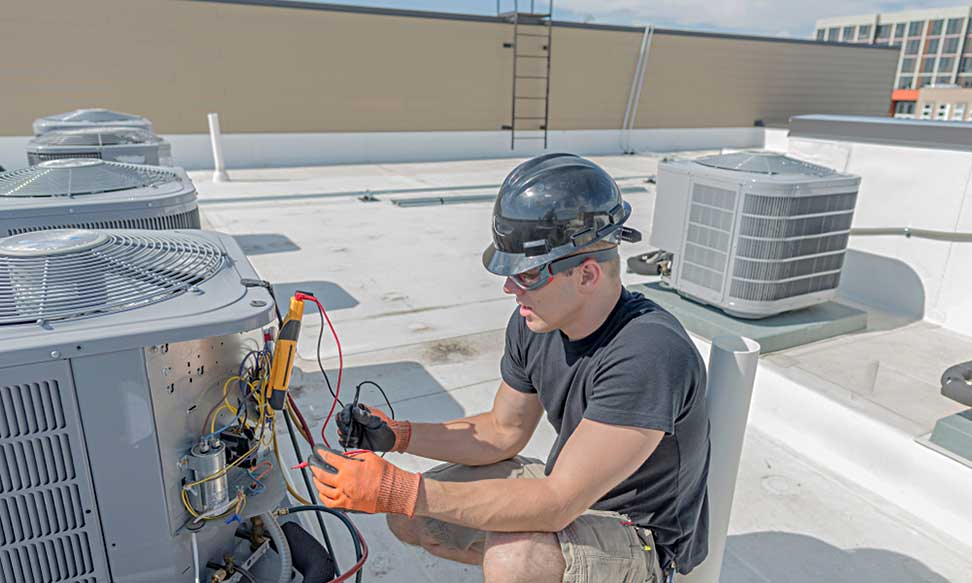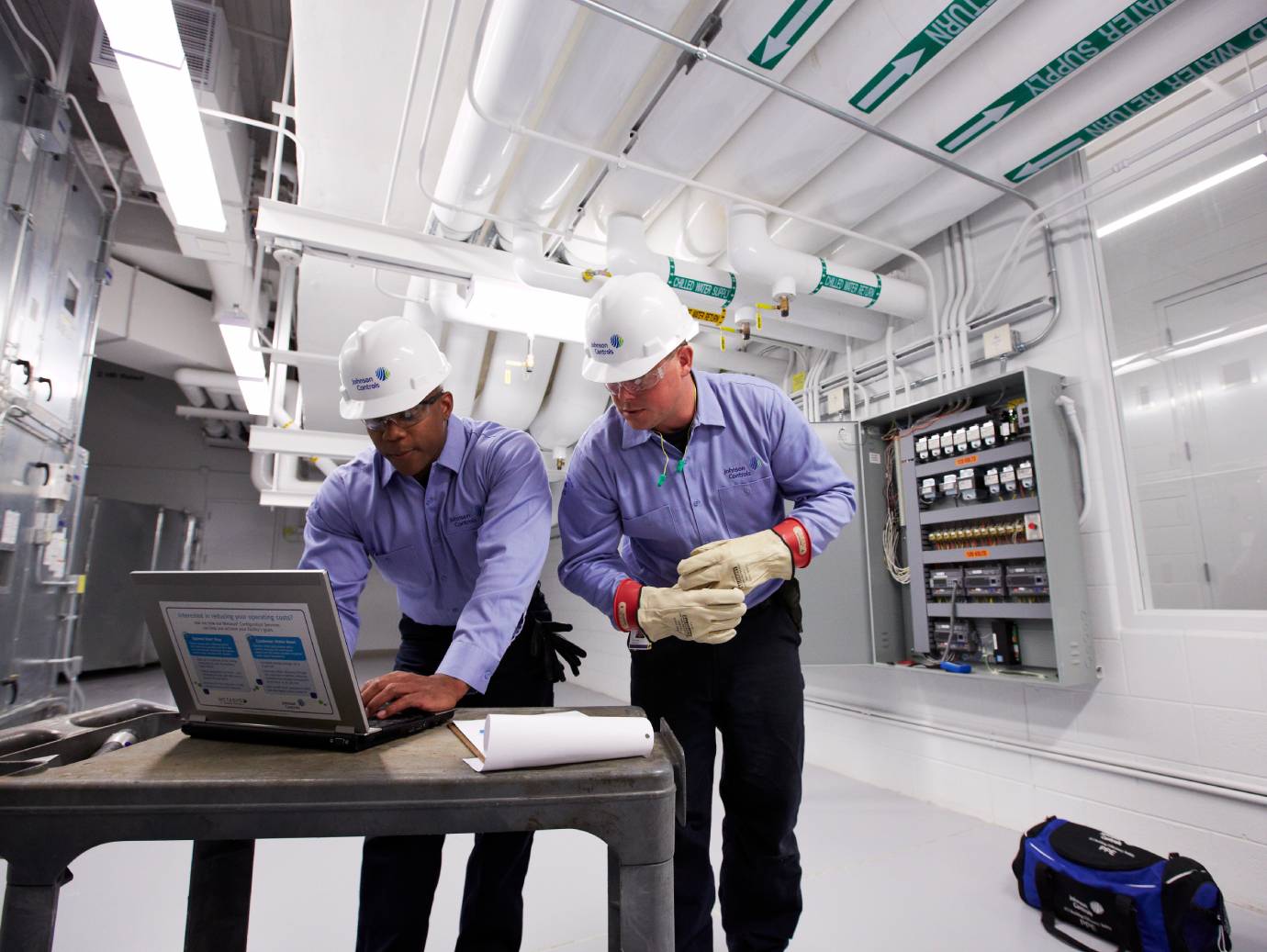Detailed Process Breakdown for heat pump installation ooltewah tn
Detailed Process Breakdown for heat pump installation ooltewah tn
Blog Article
Picking Between a Warm Pump and Furnace: Key Factors To Consider for Your Heating And Cooling Requirements
When assessing heating choices for a/c needs, the choice in between a heatpump and a furnace can be complex. Each system provides unique benefits customized to certain climates and power effectiveness goals. Understanding these distinctions is essential for making an enlightened option. Trick aspects such as setup prices and environmental impact better complicate the option process. Which option genuinely lines up with one's convenience and sustainability preferences? The following areas will certainly explore these considerations carefully.
Understanding Warmth Pumps: How They Function and Their Benefits
While numerous homeowners think about different home heating options, understanding exactly how heatpump function and their benefits can substantially influence their choice. Warm pumps run by transferring warm as opposed to creating it. In the winter months, they extract warmth from the outdoors air or ground and transfer it inside, while in the summer, they reverse this procedure, cooling the home by getting rid of warmth outside. This twin performance makes them flexible for year-round climate control.One of the key benefits of heatpump is their power efficiency. They make use of significantly much less power compared to typical heater, potentially causing lower utility costs (heat pump service). Furthermore, heat pumps have a smaller carbon footprint, making them an eco-friendly option. They likewise require much less upkeep than traditional systems, adding to long-term price savings. Overall, understanding the auto mechanics and advantages of warmth pumps can aid home owners make educated decisions regarding their heating and cooling requirements
Discovering Heaters: Kinds, Operation, and Benefits
Heating systems come in numerous kinds, consisting of gas, electrical, and oil models, each with distinct functional mechanisms. Recognizing these differences is important, as they influence performance and heating performance. Additionally, heating systems use numerous advantages, such as consistent warm output and dependability in colder climates.
Kinds of Heaters
Furnace can vary significantly in style and procedure, with heating systems being a prominent selection among property owners. There are numerous kinds of furnaces, each using different fuel resources and modern technologies. Gas heaters are typical, leveraging natural gas to create warmth successfully. Electric heating systems, on the various other hand, utilize electric resistance to produce heat, typically preferred for their straightforward installation. Oil heaters, while much less typical, work in areas with restricted gas accessibility (heat pump installation ooltewah tn). Furthermore, condensing heating systems optimize energy performance by catching and reusing exhaust gases. Each type runs with a system of warmth exchangers and ductwork to disperse warm air throughout a home. Recognizing the differences between these heater kinds is essential for educated a/c decisions
Advantages of Furnaces
For homeowners looking for trustworthy heat throughout cold months, the benefits of furnaces are substantial. Furnaces provide regular heating, making sure even temperatures throughout the home. They are particularly reliable in severe cold, frequently outperforming warm pumps in icy problems. Different types, consisting of gas, electrical, and oil heating systems, offer flexibility to meet varied needs and preferences.Furnaces additionally have a tendency to have lower first installment expenses contrasted to heatpump, making them an extra easily accessible alternative for lots of. Their durable design contributes to a much longer life expectancy, with several units lasting over 15 years with proper upkeep. Furthermore, modern furnaces are usually outfitted with innovative innovation for boosted efficiency, which can result in lowered power costs. Overall, furnaces continue to be a reputable option for reliable home heating.

Power Efficiency: Contrasting Warmth Pumps and Furnaces
When comparing power performance between heat pumps and heating systems, the Seasonal Power Effectiveness Ratio (SEER) plays a crucial role in figuring out efficiency. Additionally, an operational price analysis exposes the lasting financial implications of each system. Understanding these variables can lead house owners in making educated decisions concerning their home heating options.
Seasonal Energy Effectiveness Ratio
Energy effectiveness plays a crucial function in the decision-making process in between heatpump and heating systems, specifically when taking into consideration the Seasonal Power Efficiency Ratio (SEER) This statistics actions the cooling effectiveness of heat pumps over an entire cooling season, supplying a standard way to examine efficiency. Higher SEER rankings show better power efficiency, equating to lower energy consumption and decreased energy costs. In contrast, heating systems are typically assessed making use of the Yearly Gas Utilization Effectiveness (AFUE) rating, which shows heating performance. When comparing these 2 systems, homeowners should focus on SEER rankings for warmth pumps, as they straight effect overall energy savings and ecological sustainability. A comprehensive understanding of SEER can significantly influence the long-term contentment and cost-effectiveness of the picked cooling and heating option.
Operational Price Evaluation
Understanding the functional prices connected with heatpump and heaters is vital for home owners assessing their choices. Heatpump normally provide higher energy efficiency, transforming electric power right into warm with marginal waste. This leads to reduced month-to-month utility expenses, especially in modest climates. Alternatively, conventional heaters, particularly gas versions, may have lower ahead of time expenses yet can incur greater operational costs over time because of fuel costs and efficiency ratings.Moreover, warm pumps can function as both home heating and cooling systems, possibly reducing the requirement for different heating and cooling devices. While preliminary investments for heat pumps might be greater, their long-term financial savings in energy performance can make them an extra cost-effective option for many families. Mindful analysis of regional power prices is vital to determine the finest alternative.
Installation Expenses: What to Anticipate for every Heating Unit
Installment prices for heating unit can vary significantly between warmth pumps and furnaces, influencing house owners' decisions. Heatpump usually have greater upfront installation costs, commonly ranging from $3,500 to $8,000, depending on the unit dimension and intricacy of installment. This consists of the exterior system, indoor handling system, and necessary ductwork alterations. Conversely, heaters have a official website tendency to have reduced preliminary prices, balancing between $2,500 and $6,000, which can be appealing for budget-conscious house owners. Setup costs can enhance if extensive ductwork is required.Moreover, the choice of gas type for furnaces-- all-natural gas, propane, or electrical-- can likewise impact setup expenses. While heatpump offer power efficiency, their first financial investment might hinder some purchasers. Eventually, assessing installation prices alongside lasting financial savings and effectiveness will help home owners in making informed decisions about their home heating systems.
Environment Factors To Consider: Which System Carries Out Better in Your Area
How do climate problems influence the efficiency of heater? The performance of heatpump and heaters can vary significantly relying on the regional climate. In modest climates, heatpump excel by successfully transferring warmth from the outdoors air, making them an energy-saving alternative. Their effectiveness reduces in very cool temperatures, where they might battle to extract adequate warmth. On the other hand, furnaces, especially gas designs, offer consistent and trusted warm no matter outdoor conditions, making them more effective in colder regions.In locations that experience milder winter seasons, heatpump can run properly year-round, supplying both heating and air conditioning. In comparison, areas with extreme wintertimes often benefit from the robustness of furnaces. Inevitably, recognizing the neighborhood environment is essential when choosing between a warm pump and a heater, as it directly influences their functional effectiveness and total efficiency.
Maintenance Requirements: Long-Term Treatment for Warmth Pumps vs. Furnaces
While both heatpump and furnaces call for routine maintenance to assure peak efficiency, their certain demands and treatment routines differ considerably. Heaters commonly need much less regular attention, with yearly evaluations sufficing to check for gas More hints leakages, clean filters, and analyze general performance. Their simpler layout commonly enables uncomplicated repairs.In contrast, heatpump demand semiannual upkeep due to their twin function in heating and air conditioning. This includes cleansing coils, checking cooling agent levels, and making sure that both the exterior and indoor systems operate at their ideal. Additionally, warm pump maintenance frequently includes even more elaborate components, making expert maintenance essential.Neglecting maintenance can cause decreased effectiveness and raised energy costs for both systems. Ultimately, house owners must think about these lasting care needs when picking between a warm pump and a heater, as aggressive upkeep can extend the life expectancy and performance of either system substantially.
Ecological Impact: Choosing a Lasting Heating Alternative
The ecological influence of heater is a critical examination for property owners looking for lasting choices. Warmth pumps are generally a lot more energy-efficient than typical furnaces, as they transfer heat rather than produce it, considerably reducing carbon discharges. By using renewable resource resources, such as air-source or geothermal heatpump, homeowners can better lessen their ecological footprint.On the various other hand, gas heaters emit greenhouse gases and add to air contamination, though they commonly give greater warm output. Innovations in innovation have led to the development of high-efficiency heaters that decrease emissions.Ultimately, picking a heating system entails weighing effectiveness versus environmental impact. House owners are motivated to reflect on neighborhood power resources and rewards for renewable systems, making certain a choice imp source that straightens with both personal convenience and environmental obligation. The choice affects not only prompt comfort but additionally long-lasting sustainability and environmental health and wellness.
Frequently Asked Questions
The Length Of Time Do Heat Pumps and Furnaces Typically Last?
The lifespan of heat pumps usually varies from 15 to two decades, while heating systems can last in between 15 to 30 years. Normal maintenance substantially affects their long life and effectiveness in offering home heating remedies.
Can I Use a Heatpump in Very Cold Climates?
Heat pumps can operate in incredibly chilly climates, yet their effectiveness reduces as temperature levels decrease. In such conditions, extra home heating sources might be essential to preserve comfortable interior temperature levels and assure peak performance.

What Is the Sound Degree of Warmth Pumps Versus Furnaces?
The noise degrees of warm pumps and heating systems differ significantly. Normally, heatpump run even more quietly than conventional furnaces, making them more suitable for those sensitive to appear, while heaters may generate louder operational sounds throughout home heating cycles.
Are Warmth Pumps Suitable for Both Home Heating and Air conditioning?
Heatpump are undoubtedly appropriate for both cooling and heating (furnace replacement). They function by transferring warmth, offering effective temperature control year-round, making them a flexible option for homeowners seeking an all-in-one a/c option
What Size Heating Unit Do I Need for My Home?
Identifying the appropriate size home heating system for a home needs assessing variables such as square footage, insulation high quality, neighborhood environment, and the home's layout. Consulting a specialist can guarantee an accurate evaluation and excellent comfort. Warmth pumps commonly provide greater power efficiency, transforming electrical power right into heat with marginal waste. In modest climates, warmth pumps excel by effectively moving heat from the outdoors air, making them an energy-saving alternative. On the other hand, heating systems, specifically gas designs, provide constant and trusted heat regardless of outdoor conditions, making them preferable in chillier regions.In locations that experience milder wintertimes, warmth pumps can operate efficiently year-round, giving both home heating and cooling. Heat pumps are generally more energy-efficient than typical heaters, as they transfer heat instead than generate it, greatly decreasing carbon discharges. By utilizing sustainable power sources, such as air-source or geothermal heat pumps, house owners can additionally reduce their environmental footprint.On the other hand, natural gas heaters give off greenhouse gases and add to air contamination, though they typically provide higher warm outcome.
Report this page